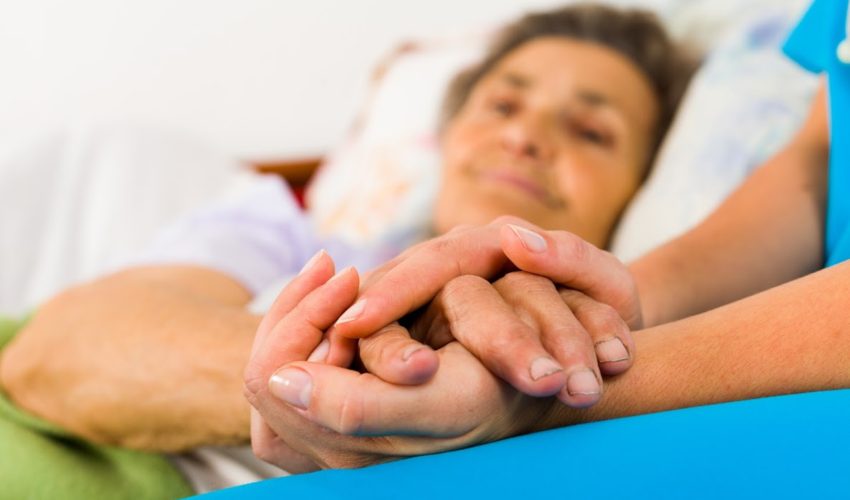Post Views: 1,074
Views“Where The Mind Goes, The Man Follows”
By David Morrison, RN
The way we think most often determines the way we live. A thought becomes an action which becomes a habit and a lifestyle. With the challenges of healthcare today it is all too often easy to let your mind focus on the negative. As we tend to think negatively we make less than positive choices to cope. Many nurses deal daily with those that are actively involved with abuse of substances and addictions. But what about the healthcare worker who also becomes involved in the same negative coping mechanisms?
Providing care to others during the COVID-19 pandemic may lead to stress, anxiety, fear, and other strong emotions. Poor coping skills can affect your well-being, the care you provide, and the well-being of your loved ones at home as well. It is critical that you recognize what stress looks like, increase resilience and coping mechanisms, and seek help when needed.
Recognize the symptoms of stress you may be experiencing, including:
- Trouble concentrating
- Uncertainty, anxiety
- Powerlessness
- Feeling tired, overwhelmed, or burned out
- Depression
- Insomnia
Most nurses or healthcare support staff have been well educated with stress-relieving devices, however, experiencing or witnessing life-threatening or traumatic events can have devastating or long-lasting effects. In some circumstances, the distress can be managed effectively to reduce associated negative health and behavioral outcomes. In other cases, some people may experience clinically significant distress or impairment. PTSD or secondary traumatic stress, fatigue, and burnout may also result from traumatic events during the COVID-19 pandemic.
Open communication is vital at this time especially with co-workers and superiors who may help you identify factors that cause stress and identify solutions. I find journaling helps me identify feelings or sharing with a family member who is a good listener, should things become extremely difficult, however, it would be best to seek professional help.
You are performing a critical role in fighting this pandemic. The Center for Disease Control recommends ensuring adequate sleep, healthy eating habits, taking frequent breaks and exercise, to indeed assist you in increasing resilience. Pay attention to those warning signals if you feel you may be misusing alcohol or other drugs including prescription or OTC medications.
- Drinking secretly or lying about your drug use when confronted by co-workers or loved ones. Many addictions begin with drinking alcohol or smoking a joint after a stressful day, Marijuana can be a gateway drug according to James J. Crist, Ph.D., C.S.A.C., Psychologist and Substance Abuse Counselor “The Big Deal About Addictions”. If you feel like you can’t truly relax without taking a substance, you might be using alcohol or drugs as an emotional crutch.
- If you find that you drink until you pass out you may have a problem. If you or others begin to notice alcohol or drug use interfering with your work, causing trouble at home, or affecting your physical or mental health, you might want to heed their warnings.
- Withdrawal feeling, shaky, sweaty, tired, nauseous, or depressed when not using.
- Tolerance, needing more and more to feel the same effect you used to feel.
- Inappropriate use of drinking before work or driving.
- Loss of interest in things that were important. Life becomes one-dimensional. You may trade healthy pursuits you once enjoyed for the comfortable feeling of being drunk or high.
- Lack of success in quitting.
Addiction among nurses has been recognized by professionals in the field for over 100 years with current estimates of substance abuse and addiction greater than 20% among practicing nurses. I am sure this has increased in the past year. According to the Centers for Disease Control and Prevention, as of June 2020, 13% of Americans reported starting or increasing substance use as a way of coping with stress or emotions related to COVID-19. Overdoses have also spiked since the onset of the pandemic.
Ineffective policies that mandate punitive action make it difficult for impaired professionals to seek help. Loss of licensing or punishment and discipline keep nurses and healthcare workers from seeking help or reporting colleagues.
Providing early intervention and assistance is essential in helping colleagues and students recover from abuse and addiction along with a non-punitive atmosphere of support. You as a healthcare professional can make a difference in promoting effective policies and providing support during these stressful times.
Bio‐ Terry Kovacs, LPN, RMA
Terry Kovacs, LPN, RMA has been a nurse for 40+ years. She has been a Detox Nursing Supervisor for 15+ years, a Medical Instructor for 13 years, and a Domestic Violence Crisis Counselor for 4 years. Terry is married and has 3 daughters, 8 grandchildren, and 5 great-grandchildren. She is also an Ordained Minister and Worship Leader. Terry has 1 book published and several articles published.
One comment on ““Where The Mind Goes, The Man Follows””
Leave a Reply
“Where The Mind Goes, The Man Follows”
By Nurse Advisor Magazine (Official)
The way we think most often determines the way we live. A thought becomes an action which becomes a habit and a lifestyle. With the challenges of healthcare today it is all too often easy to let your mind focus on the negative.














My ex-husband and I had always managed to stay friendly after our divorce in February 2017. But I always wanted to get back together with him, All it took was a visit to this spell casters website last December, because my dream was to start a new year with my husband, and live happily with him.. This spell caster requested a specific love spell for me and my husband, and I accepted it. And this powerful spell caster began to work his magic. And 48 hours after this spell caster worked for me, my husband called me back for us to be together again, and he was remorseful for all his wrong deeds. My spell is working because guess what: My “husband” is back and we are making preparations on how to go to court and withdraw our divorce papers ASAP. This is nothing short of a miracle. Thank you Dr Emu for your powerful spells. Words are not enough.
Email emutemple@gmail.com
Phone/WhatsApp +2347012841542.